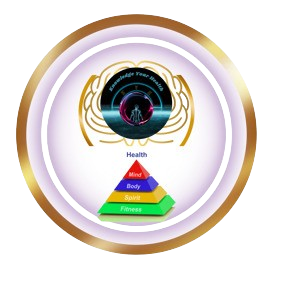Vitamin B7 (Biotin) Overview
Vitamin B7, commonly known as biotin, is a water-soluble vitamin that plays a vital role in various bodily functions. It is a part of the B-vitamin family and is essential for maintaining overall health and well-being. Biotin is involved in numerous metabolic processes and is particularly important for energy production, fatty acid synthesis, and the metabolism of carbohydrates and amino acids.
Health Benefits of Vitamin B7
1. Energy Production: Biotin is essential for converting carbohydrates, fats, and proteins from food into energy that the body can use. It helps produce ATP (adenosine triphosphate), the primary energy currency of cells.
2. Fatty Acid Synthesis: Vitamin B7 plays a crucial role in the synthesis of fatty acids, which are important for maintaining healthy skin, hair, and nails, as well as supporting proper cell membrane function.
3. Hair, Skin, and Nail Health: Biotin is often referred to as “the beauty vitamin” due to its role in maintaining healthy hair, skin, and nails. It supports keratin production, a protein that makes up the structure of hair, skin, and nails, promoting their strength and integrity.
4. Blood Sugar Regulation: Some research suggests that Vitamin B7 may help regulate blood sugar levels by supporting insulin production and improving insulin sensitivity, which can be beneficial for individuals with diabetes or insulin resistance.
Diseases and Conditions Benefited by Vitamin B7
1. Biotin Deficiency: Although rare, severe biotin deficiency can lead to symptoms like hair loss, skin rash, neurological abnormalities, and metabolic disturbances.
2. Hair Loss and Brittle Nails: Biotin supplementation is often recommended for individuals experiencing hair loss or brittle nails, as it can help strengthen and improve the condition of hair, skin, and nails.
3. Diabetes and Insulin Resistance: Some studies suggest that Vitamin B7 supplementation may help improve blood sugar control and insulin sensitivity in individuals with diabetes or insulin resistance.
4. Neurological Disorders: Preliminary research indicates that biotin supplementation may be beneficial for certain neurological disorders, such as multiple sclerosis (MS), although further studies are needed to confirm these findings.
Recommended Dosage of Vitamin B7
The recommended daily allowance (RDA) for Vitamin B7 varies depending on age, gender, and life stage:
- Infants (0-6 months): 5 mcg (micrograms)
- Infants (7-12 months): 6 mcg
- Children (1-3 years): 8 mcg
- Children (4-8 years): 12 mcg
- Children (9-13 years): 20 mcg
- Teens (14-18 years): 25 mcg for both females and males
- Adults (19 years and older): 30 mcg for both females and males
Food Sources of Vitamin B7
1. Egg Yolks: Egg yolks are one of the best sources of biotin.
2. Organ Meats: Liver and kidney are rich in Vitamin B7.
3. Nuts and Seeds: Almonds, walnuts, and sunflower seeds contain biotin.
4. Legumes: Lentils, chickpeas, and soybeans are good sources of Vitamin B7.
5. Whole Grains: Brown rice, whole wheat, and oats contain biotin.
Tips for Maximising Vitamin B7 Absorption:
Cooking Methods: Biotin is stable when exposed to heat. Cooking methods like boiling, steaming, and baking can help preserve Vitamin B7 content in foods.
Dietary Diversity: Incorporating a variety of Vitamin B7-rich foods into your diet can help ensure you’re getting enough of this essential nutrient.
In conclusion, Vitamin B7 (biotin) is a vital nutrient that plays a crucial role in energy production, fatty acid synthesis, and the health of hair, skin, and nails. By incorporating Vitamin B7-rich foods into your diet and following the recommended dosage guidelines, you can maintain optimal biotin levels and support your overall health and well-being. Always consult with a healthcare professional before starting any supplementation regimen to ensure it’s appropriate for your individual needs.
